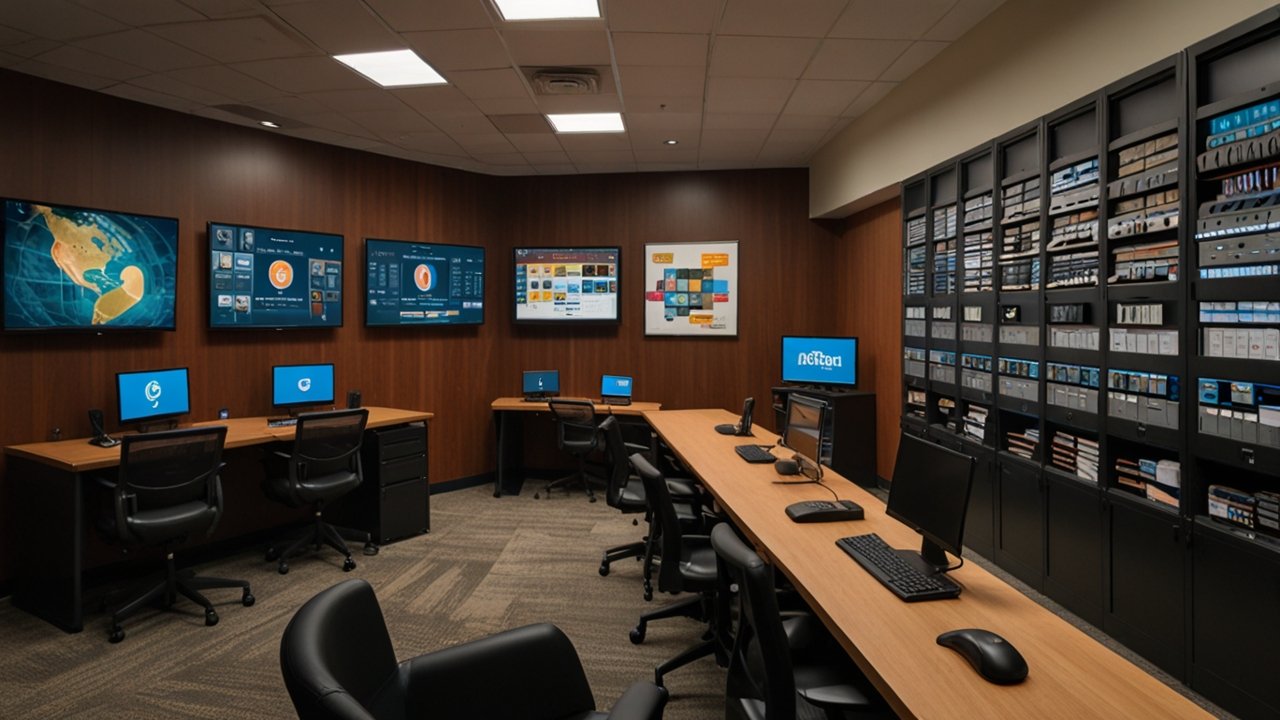Podcast Hosting: 7 Essential Features 2025
The digital audio revolution has radically transformed the way we create and consume content. With more creators than ever keen on producing high-quality shows and reaching global audiences, the role of podcast hosting has never been more critical. In today’s fast-paced environment, reliable platforms and innovative features keep creators connected with their listeners.
Over the past two decades, advances in technology have led podcast hosting services to significantly evolve. Early methods relied on basic file storage and manual RSS feed updates. Now, sophisticated solutions are emerging that integrate robust analytics, advanced monetization strategies, and imperceptible scalability. This article breaks down the essential features that define top podcast hosting platforms in 2025.
📑 Table of Contents
- Introduction to Podcast hosting
- Evolution and History of Podcast hosting
- How Content Distribution Enhances Podcast hosting
- Audio Publishing Systems and Their Applications
- Real-World Case Studies of Podcast hosting
- Digital Broadcasting in Modern Podcast hosting Solutions
- Future Trends in Podcast hosting: Media Platforms and Beyond
- Revolutionary Podcast hosting Insights for Visionaries
- FAQ
- Conclusion
As you read through the following sections, you will understand the historical evolution, technological innovations, and future trends that shape the podcast hosting landscape. Whether you are a seasoned podcaster or new to the digital audio space, these insights will provide immense value and help answer many critical questions about today’s hosting services.
Introduction to Podcast hosting
Understanding the Core Concepts in Podcast hosting
Podcast hosting is the backbone of the digital audio ecosystem. In its simplest form, it involves storing, managing, and distributing audio files via RSS feeds to various directories. Early on, podcast hosting was a technical challenge, often leading to bandwidth bottlenecks and broken delivery systems. Today’s solutions leverage cloud infrastructure and advanced integration tools to ensure a seamless experience for both creators and listeners. For example, platforms have evolved from offering basic file storage to include automated analytics, media management, and direct integration with popular directories such as Apple Podcasts and Spotify.
According to a detailed study on The Podcast Host, the emergence of specialized hosting has enabled increased scalability while reducing latency. Additionally, podcast hosting’s technological evolution supports dynamic ad insertion and monetization options that range from premium subscriptions to branded content partnerships.
The improvements in infrastructure also mean that hosting services now offer mobile-optimized functionalities, ensuring that over 75% of listeners on smartphones enjoy a reliable streaming experience. Have you ever wondered how these technical enhancements impact your listening experience?
Benefits of Modern Podcast Hosting Solutions
Modern podcast hosting solutions have revolutionized how content is managed and distributed. They not only provide advanced analytics but also empower creators with tools to monetize content effectively. For instance, analytics dashboards now track user engagement, listener demographics, and geographic reach, allowing podcasters to refine their strategies based on solid data. The inclusion of automated reporting enables creators to adjust content dynamically, making programming more responsive to audience behavior.
Additionally, the ease of integration with social media platforms allows creators to expand their audience reach quickly. This seamless sharing model is further enhanced by compatibility with various devices, ensuring that whether you are streaming on a smartphone, desktop, or tablet, the experience remains consistent. For more information on optimization strategies, visit Technology News.
The evolution of these systems emphasizes reliability and scalability, essential for a growing audience base. How can you leverage these benefits to reach new heights with your digital content?
Evolution and History of Podcast hosting
From Early Self-Hosting to Specialized Platforms
The history of podcast hosting mirrors the broader evolution of digital audio. In the early 2000s, content creators manually managed their files, resulting in numerous challenges such as bandwidth limitations and inconsistent delivery. The term “podcasting” itself only emerged in 2004, and initially, creators relied on rudimentary web hosting services. This early phase saw most podcasters grappling with the technical hassles of self-hosting and manual RSS feed updates.
As the industry matured, specialized podcast hosting platforms were born. These platforms offered robust servers, scalable bandwidth, and automated RSS feed management which alleviated many of the earliest technical issues. Technologies, like content delivery networks (CDNs), were introduced to ensure global accessibility and smooth streaming experiences. The advances in hosting technology provided a solid foundation for the development of monetization tools and deeper listener analytics. Have you experienced the shift from basic tools to today’s sophisticated systems?
Key Milestones in the Development of Podcast Hosting
Significant milestones have defined podcast hosting’s journey over the past two decades. The introduction of Apple Podcasts in 2005, for example, brought unprecedented growth in audience reach, paving the way for a more immersive listening experience. When major players like Spotify, Google, and Amazon entered the arena in the 2010s, they introduced new monetization models and cross-platform distribution capabilities. These innovations helped structure the market and provided more robust revenue-generating options for content creators.
Recent research from Livewire shows that the number of episodes and active podcasts has seen an exponential increase. This evolution is also marked by the emergence of video podcasts – or vodcasts – which cater to cultural shifts in how multimedia content is consumed. Each step of this evolution has guided the industry towards more integrated and sophisticated systems. Do you think these historical milestones have influenced current content strategies?
How Content Distribution Enhances Podcast hosting
Optimizing the Reach through Advanced Distribution Protocols
Effective content distribution is a cornerstone of high-quality podcast hosting. By employing advanced distribution protocols and robust content delivery networks, modern platforms can ensure a smooth and uninterrupted audio experience to a global audience. The process involves automatically syndicating audio files, which minimizes buffering and latency, even as millions of users tune in simultaneously.
Recent data from TVEyes indicates that as of 2025, global listener numbers have soared, with over 584 million users projected by year-end. These figures underscore the critical role that distribution systems play in scaling podcast operations. With improved technologies, these systems not only support better audio quality but also optimize the overall user experience across different devices.
This seamless distribution mechanism allows podcasters to focus on creative content rather than technical challenges. Have you considered how better distribution might enhance engagement on your favorite shows?
Integrating Analytics with Distribution Systems
Modern hosting platforms integrate in-depth analytics with distribution to provide real-time insights into audience behavior. Detailed dashboards now track metrics such as downloads, unique listener counts, retention rates, and geographic spread. These insights allow content creators to troubleshoot issues rapidly and adapt their strategies to cater to shifting audience preferences.
The integration of analytics with distribution creates opportunities for dynamic ad insertion and targeted content delivery. According to Exploding Topics, innovative ad models have begun to emerge, promising increased revenue streams through micro-subscriptions and direct listener support. These metrics and technological overlaps ensure that every episode is optimized for maximum reach and engagement.
How might you use detailed analytics to perfect your creative strategy and boost your audience engagement?
Audio Publishing Systems and Their Applications
Core Features of Modern Audio Publishing Systems
Audio publishing systems are critical in transforming raw audio files into a seamless experience for listeners. These systems manage the entire lifecycle of an audio file—from upload to distribution—while providing advanced features for scheduling, transcribing, and monetizing content. The integration of these capabilities has been a game changer for many podcasters.
Systematic developments have introduced automated editing and transcription tools that significantly cut down production time. For many, this means a more efficient workflow that can keep up with the rapid pace of content production demanded by modern audiences. For example, several platforms now offer both free hosting and premium features, striking a balance between initial accessibility and advanced functionality for larger productions.
Furthermore, improved audience analytics allow creators to understand listener behavior and fine-tune their content accordingly. For more information on technological innovations in this space, check out Tech Developments. How do you believe these enhancements can transform your digital content strategy?
Real-World Applications and Use Cases
Real-world applications of audio publishing systems extend far beyond simple content delivery. Businesses and independent creators alike have leveraged these systems to build loyal communities and create multiple revenue streams through dynamic advertising, premium content, and even crowdfunding platforms like Patreon. Case studies have shown that in some corporate implementations, episodes have achieved download numbers in the millions, bolstering brand authority and audience trust.
For instance, companies like SAP and Amazon have capitalized on these systems by integrating them with enterprise-level analytics, helping them make data-driven decisions that target specific segments of their audience. Furthermore, automated content management tools have enabled live podcasting sessions with real-time audience interaction during broadcasts. Have you ever noticed how live events and interactive sessions change the way you consume content?
Real-World Case Studies of Podcast hosting
Corporate and B2B Success Stories
Several corporate podcasts have achieved impressive success, showcasing the power of well-developed hosting solutions. For instance, RBC’s podcast exceeded 2 million downloads, using sophisticated distribution methods to enhance audience engagement and corporate communications. Avison Young’s series boasted a 95% listen-through rate, positioning the firm as an industry thought leader. Notably, Amazon’s business advice podcast not only boosted brand trust but also achieved significant audience growth. Such achievements demonstrate that professionally managed hosting solutions can transform how brands communicate internally and externally.
Data from JAR Audio confirms that the integration of advanced analytics and monetization features into hosting platforms is critical for delivering measurable outcomes. Businesses are increasingly utilizing these solutions to track listener engagement and strategically place dynamic ads based on real-time consumption patterns. Have you experienced a podcast that not only entertains but also educates you about industry trends?
Moreover, corporate successes in this realm inspire others to adopt similar strategies, proving that innovation in digital audio can drive substantial business value.
Independent Creators and Niche Shows
Independent podcasters have also reaped significant rewards from modern hosting platforms. “Crime Junkie,” which started in 2017 as an independent project, built its massive following through consistent storytelling and effective use of monetization options like Patreon. This grassroots success is a testimony to how robust hosting systems empower even small-scale producers to reach a global audience.
Additionally, smaller creators have successfully leveraged cross-platform branding and collaborative marketing to expand their reach. According to insights from Lower Street, these individual efforts not only yield high engagement figures but also foster deeply committed communities. Interactive features such as live Q&A sessions and social media integration contribute further to a creator’s success. How might such strategies inspire you to explore new creative avenues?
To further illustrate, the following table provides a comprehensive comparison of case studies that highlight different strategies and their impacts:
Comprehensive Comparison of Case Studies
| Example | Approach | Impact | Region |
|---|---|---|---|
| RBC Podcast | Corporate branding and analytics | 2M+ downloads, enhanced engagement | North America |
| Avison Young | Thought leadership | 95% listen-through rate | Global |
| Amazon Business Podcast | Brand trust development | High audience growth | Global |
| Crime Junkie | Independent storytelling | Massive loyal following | United States |
| SAP Cloud ERP Podcast | Industry insights | 25K+ downloads | Global |
This comparative data reflects the diverse ways hosting innovations can contribute to growth and brand recognition. Have you seen a case study that changed your perception of audio content creation?
Digital Broadcasting in Modern Podcast hosting Solutions
Enhancements in Broadcasting Technologies
Modern digital broadcasting incorporates cutting-edge technologies to deliver high-quality audio streams. Improvements in network protocols, combined with advanced encoding techniques, ensure that content reaches audiences without interruption. This evolution in broadcasting technology has not only increased listener satisfaction but also opened avenues for live interactive sessions and real-time engagement.
Streaming services are now optimized for mobile devices, resulting in superior performance even on low-bandwidth connections. Data from Statista shows that over 40% of listeners now prefer visual and interactive content that accompanies their standard audio streams.
Efforts to integrate broadcasting with social media platforms have further revolutionized the accessibility of digital audio content. This seamless integration helps bridge geographical divides and allows podcasters to build diverse, global communities. What improvements in broadcasting would make your listening sessions even more engaging?
Integration of Live and On-Demand Features
Digital broadcasting today offers a blend of live and on-demand features that cater to varied audience preferences. Live sessions allow podcasters to interact with their audience in real-time, receive immediate feedback, and build community trust. Conversely, on-demand content ensures that recordings are available at any time, providing listeners the flexibility to consume content on their own schedule.
This dual mode of delivery has become particularly popular among educational and corporate podcasts, which use live sessions to foster interactive learning and on-demand content for in-depth analysis. Enhanced by cloud computing, these models are refined to deliver consistent quality regardless of network conditions. Have you participated in a live podcast session that significantly enhanced your experience?
This blend of live and on-demand broadcasting represents the forefront of digital innovations in audio, ensuring every listener finds a format that suits their lifestyle and consumption habits.
Future Trends in Podcast hosting: Media Platforms and Beyond
Emerging Technologies Shaping the Future
The future of digital audio looks exceptionally promising, fueled by rapid technological advancements. Artificial intelligence is set to revolutionize post-production processes through automation in editing, transcription, and even content curation. Furthermore, sophisticated personalization algorithms will tailor the listening experience to individual preferences, ensuring that content is both relevant and engaging.
Industry experts predict that dynamic ad insertion will become more refined, offering advertisers a seamless experience while providing podcasters with greater revenue opportunities. As non-English podcasts gain traction, culturally-tailored platforms will drive regional growth in markets such as Asia, Latin America, and Africa.
In this rapidly evolving landscape, the integration of emerging technologies ensures that creators have the tools necessary to innovate continuously. With developments in both hardware and software, the boundaries of traditional broadcasting are expanding. Do you believe such advancements will redefine the future of audio entertainment?
Predictions on Monetization and Interactive Features
The future holds significant promise for interactive content and enhanced monetization methods. Predictions indicate that micro-subscriptions, viewer tipping, and direct audience support will become normative features on hosting platforms. These innovations will bolster revenue streams without compromising content quality.
Moreover, interactive features such as live Q&A sessions, audience polling, and real-time feedback loops are poised to significantly enhance user engagement, blurring the lines between content creators and consumers. As platforms refine these functionalities, traditional advertising models will give way to dynamic, context-aware ad insertions that benefit both creators and listeners.
Continuous integration of regulatory adaptation, including stricter data privacy standards and content moderation policies, will further shape monetization strategies and audience analytics. How will these predictions influence your future choices in content consumption?
Revolutionary Podcast hosting Insights for Visionaries
This section is crafted to spark intrigue and captivate forward-thinkers. It offers a moment to envision a future where creative thought flows unencumbered by traditional limitations. Imagine immersive experiences that connect stories with cutting-edge technology, bridging art with intelligent systems that surprise and delight. The narrative here explores ideas that fuel passion and innovation in everyday experiences, inspiring daring minds to embrace new methods of expression and community-building.
With originality at its core, this piece hints at revelations that motivate individuals to see beyond the immediate, sparking a desire to redefine boundaries typically taken for granted. The insights provided invite you to question norms and celebrate the unexpected, driving creativity into uncharted territories. Let your imagination run wild as you reflect upon hidden potential and fresh perspectives. Embrace a journey that transcends ordinary limits and opens up new realms of inspiration.
This brave new world of ideas empowers every creative spirit to be bold and pioneering. As thoughts mature and innovative visions come to life, each moment offers new ways to engage with the community. Does this unique perspective inspire you to reconsider your approach to future creative endeavors?
FAQ
What is podcast hosting?
Podcast hosting is a service that stores, manages, and distributes your audio files via an RSS feed to various listening platforms, ensuring reliable delivery and efficient content management.
How did podcast hosting evolve over time?
It evolved from simple self-hosting setups to advanced, specialized platforms that offer scalable bandwidth, in-depth analytics, and monetization tools driven by modern cloud technologies.
Why are analytics important in podcast hosting?
Analytics provide insights into download numbers, listener demographics, geographic reach, and engagement levels, enabling podcasters to tailor their content and monetize more effectively.
What are some key monetization methods used in podcast hosting?
Common monetization methods include dynamic ad insertion, premium subscriptions, branded content, and crowdfunding options like Patreon, all of which help generate revenue for content creators.
How do emerging technologies influence the future of podcast hosting?
Emerging technologies like AI-powered editing and transcription, dynamic ad insertion, and personalized content recommendation are set to revolutionize the way podcasters produce and distribute content.
Conclusion
The evolution of podcast hosting has transformed the digital audio landscape from rudimentary self-hosted systems to sophisticated, scalable platforms. With a seamless blend of innovative distribution, robust analytics, and dynamic monetization tools, today’s solutions are tailored to empower both corporate giants and independent creators alike.
As discussed, the future is bright with emerging technologies promising even more personalized and interactive experiences. We invite you to explore these transformative insights further on Tech Trends pages, and if you have any questions or thoughts, please Contact us. What innovative features do you think will shape the future of your favorite podcasts?
For more information on innovations in digital audio and performance-enhancing strategies, revisit the external studies from The Podcast Host, Livewire, TVEyes, Exploding Topics, and Statista. Have you experienced these changes firsthand, and what effect did they have on your listening experience?




















Leave a Reply